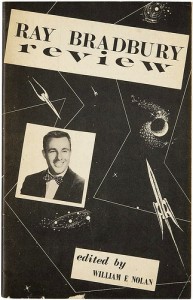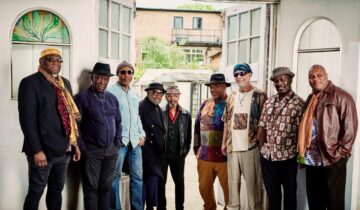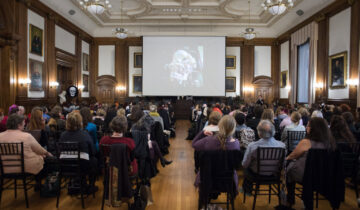 For the ECONOMIST: THE sadness I first felt upon hearing the news of Ray Bradbury’s death soon gave way to a grin as I recalled how lucky I was to have met him in person.
For the ECONOMIST: THE sadness I first felt upon hearing the news of Ray Bradbury’s death soon gave way to a grin as I recalled how lucky I was to have met him in person.
Bradbury died on Tuesday in Los Angeles after a lengthy illness. He was 91. He is credited with bringing science fiction into the mainstream by ditching a lot of the jargon associated with the genre and concentrating more on great storytelling. He wrote hundreds of short stories, nearly 50 books, plays, screenplays, poems, essays and operas. His best known novels such as the apocalyptic “Fahrenheit 451”, “The Illustrated Man”, and “The Martian Chronicles”, and the screenplay for John Huston’s film adaptation of “Moby Dick”. In his stories, which are ubiquitous in public school and university curriculums, he predicted things like ear buds, ATMs and flatscreen TVs. He never won a Pulitzer, but was awarded a Pulitzer citation in 2007. Bradbury never went to college, and said he got all the education he needed from libraries.
I met Bradbury around 2002 at a bookstore in downtown Glendale, California, where he gave a reading and signed books. I had the Saturday shift for the local paper and was assigned to cover the event. It was a typically beautiful southern California day, and Bradbury, in his suit and tie and full head of white hair, was as bright and sharp as the sunshine outside. Evidence of his lunch had dripped down the front of his blue shirt, but he did not seem to mind. He smiled through his thick-rimmed glasses and immediately started talking to me as if we already knew each other.
We had a few minutes before the reading and signing began, but instead of firing off the questions I had prepared, we just chatted. I scribbled notes as he talked about renting typewriters for a few cents an hour in the basement of the Los Angeles Library, and how he thought his stories were not so much science fiction but about people, emotions, fears, ideas, possibilities and excitement.
Excitement oozed from Bradbury. He beamed when he talked about pretty much everything. At that time he was particularly excited about the stage production of “Fahrenheit 451”, which he was producing with his Pandemonium Theatre Company in Burbank.
I told him how much I loved “Something Wicked This Way Comes”, his 1962 story about two adolescent boys who encounter a bizarre carnival that comes to town one autumn. The boys’ wide-eyed curiosity and desire for adventure spoke to me, and the sinister travelling show they encounter in the cooling, windy days of the season scared me in a compelling way: I was genuinely frightened but couldn’t wait to know what happened next. My own childhood years in Iowa made the book’s Midwest setting that much more appealing. I love both the book and the film adaptation to this day.
He asked me lots of questions. He asked about my reporting job, my writing, what my life was like in Los Angeles. He told me I was young and should pursue my passions.
The turnout for the book signing was a bit thin. But those who came were big fans, and Bradbury apparently enjoyed chatting them up. In the book I asked him to sign, he wrote: “Dear Gary, keep on writing! Ray Bradbury.”
In a 2005 book of essays, Bradbury explained his joyful outlook in this way:
“Occasionally I wonder why I can be so happy. The answer is that every day of my life I’ve worked only for myself and for the joy that comes from writing and creating. The image in my mirror is not optimistic, but the result of optimal behaviour.”



